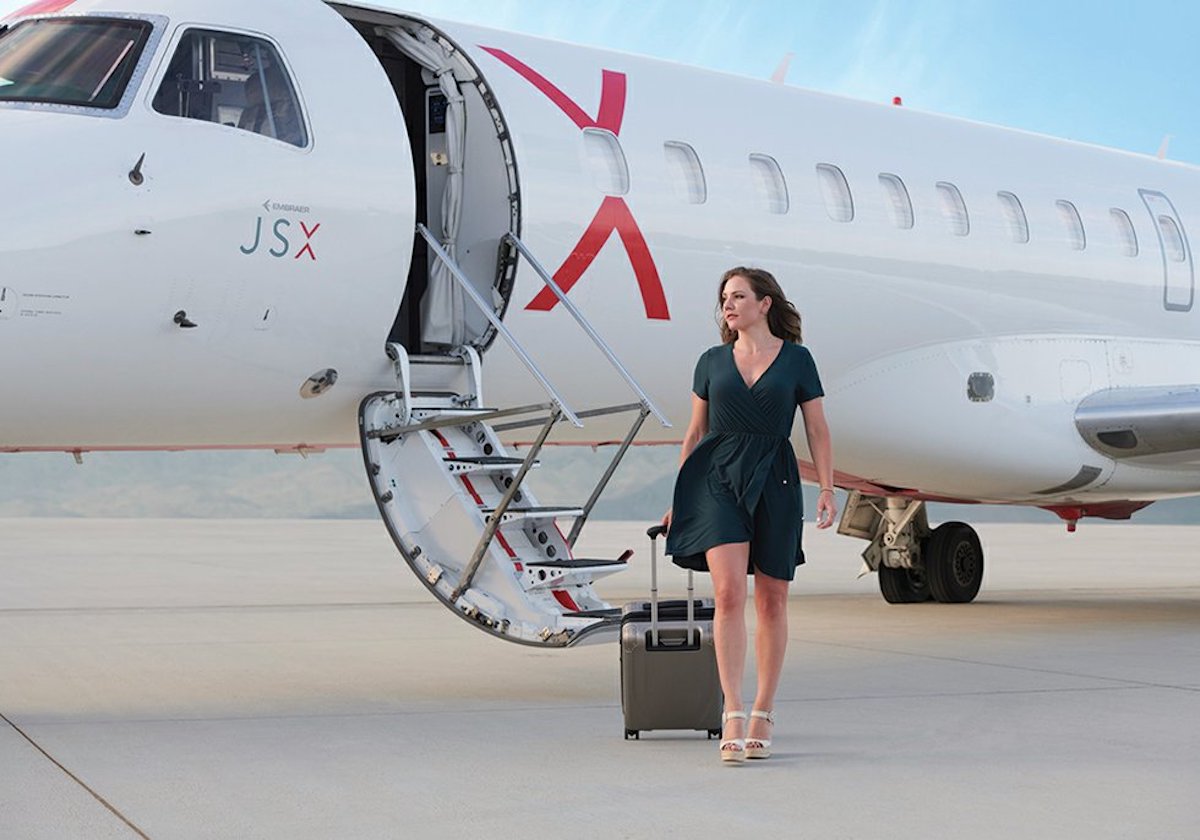
The Federal Aviation Administration (FAA) has announced its intention to modify existing regulations to address what it views as a “loophole” in the law allowing “public charter” operators to effectively offer scheduled service, a business model exemplified by JetSuiteX (JSX). Rather than put carriers like JSX and Aero out of business, I’d like to see a more fundamental change to the rules governing aircraft with 30 or fewer seats.
FAA Signals Intent To Crack Down On JSX Through Revision Of “Public Charter” Regulations
While most US carriers operate under 14 CFR Part 121 (a classification for regularly-scheduled air carriers), JSX operates under 14 CFR Part 135 (a classification primarily for commuter and on-demand operations).
This is what allows JSX to offer a quasi-private jet experience and use pilots older than 65 (who still must pass the same rigorous health requirements as their younger counterparts) or have flown less than 1,500 hours.
I’ve written in detail about this issue here.
I think it is quite clear that JSX is operating outside the spirit of the law (calling what can only honestly be described as scheduled service “charter” though it represents a dubious stretching of the law’s intent). But I also think that this (currently legal) stretching of the law should be celebrated, encouraged, and ultimately protected because JSX is good for consumers. I believe the minimum 1,500-hour pilot rule requires revision and will pointedly add that JSX pilots are not simply young kids with no experience, but often former commercial airline senior captains who are sharp and healthy, but have been forced out by the mandatory retirement age of 65 for pilots, regardless of their mental and physical health.
As much as I find the legacy airline and union opposition to JSX to be wholly self-serving, anti-consumer, and even anti-safety, I do think it has a point that JSX is not operating as intended by regulators. The key now is for regulators…or Congress…to clarify this matter in a way that protects JSX (better than a court doing so).
Rather than effectively ban JSX (which sadly seems most likely), I’d like to see all 30-seat aircraft to be permitted to operate under Part 135. Let’s dispense with the scheduled/charter theatrics. That would send pilot unions into a tizzy, but with the right safety oversight, it would be a boon to consumers and encourage innovation while expanding access to air service without necessarily the hassle of airport security.
What’s Next For JSX?
Here’s the process:
- The FAA will “shortly” propose a new rule
- The public will then have 60 days to comment
- A final rule will be issued, set to take effect on a specified date
You can bet that if the rule puts JSX out of business, there will be a lot of litigation that could halt the implementation of any new rule.
Here’s how FAA Administrator Mike Whitaker describes this move:
“Part of the safety mission of the FAA is identifying risk early on, and that’s exactly what we’re doing on public charters as usage expands. If a company is effectively operating as a scheduled airline, the FAA needs to determine whether those operations should follow the same stringent rules as scheduled airlines.”
“At the same time, we want to look at how future innovation might cause us to think differently. Safe air travel options should be available to everyone, not limited to only those living near a major airport. We want to put a safety lens over the options of future innovation, as we work to further connect small and rural communities to open up more options for everyone at the same high level of safety.”
Again, I think that if any change is made, it should be to make it easier for airlines to operate service on smaller jets, which can incentivize market competition without abrogating reasonable safety standards.
> Read More:JSX Represents A Legal Test Case For Innovation
> Read More:JSX Condemns American Airlines + Southwest Airlines
image: JSX




Safety and fairness are irrelevant. Just ask Ted Cruz who seems to think he shouldn’t have to go through security.
The reality is that JSX was never going to be able to contribute enough money to members of Congress to have them rule in their favor over the legacy carriers. I never found JSX to be useful, but it’s a shame to lose a market participant to political lobbying.
Give us one good reason that a sitting Senator should have to go through TSA security?
What’s good for the goose is good for the gander. There should be no special privileges for those in government, they should be subject to the same laws, rules and regulations that the rest of us are subject to.
Bob Menendez is going to be a convicted felon. Markwayne Mullin has challenged people to fights and clearly has an anger problem. Aaron Burr killed somebody with a gun. Madison Cawthorne (Rep. Not Sen) tried to sneak a gun on a plane knowingly.
i mostly agree with you…..but i’m sure there is a path that tightens the regulations on JSX and others but allows them freedom of entreprenurial spirit; without enraging the airline union constiuancy.
Why would a clarification in the regulations put JSX out of business? They could just comply with the appropriate regulations, even if it will cost customers a bit more. All regulations entail an implied cost, I’m not sure why this would end in their demise.
It destroys the business model if they have to operate out of congested passenger terminals with TSA Screening. It would errode the price premium and that makes its LOPAs inherently problematic.
Next step in this process: Biden re-election campaign receives large donations from certain “interested” parties. Then in accordance with party directive, Mayor Pete quietly directs FAA to “find” against companies like JSX in the name of “safety”. After all, November is looming, and a campaign must remember who donated and their expectations…
Let these entrepreneurial mavericks operate as is with a caveat full transparency to all employees and customers with enhanced safety measures and standards that meet all FAA regulations implemented voluntarily. This will allow a fair if any transition period needed for both sides to reach a consensus.
From what you are saying, Matthew, it appears that the competitive advantage of this service is mostly based on offering passengers the option to dodge security screening. In most of Latin America there’s not even a priority queue to expedite security for those who fly every week and/or spend lots of money on business class tickets, yet in the ‘developed’ USA you can just pay extra to avoid undergoing any checks whatsoever.
This loophole looks like an arbitrage opportunity which has been created by the US government, duly exploited by businesspeople with a high risk tolerance, and now being closed by the same civil servants who had created it in the first place. Looks like the right thing to do.
People need to realise that there is no free market when the state subjects the customers of certain airlines to humiliating queues, searches and even interrogations while those who travel with a competitor can just seamlessly waltz into the lounge and pour themselves a drink. Just like there’s no free market when a hotel needs to comply with thousands of pages of regulations from data protection through employment law to fire safety and water conservation when their Airbnb competitor across the road can set up shop by signing up to an app.
(To be clear, I am not convinced that thorough security screening of all pax needs to be carried out in 2024 when state actors are constantly monitoring everyone’s communications. I just think that the premise of the state officially giving people the option to pay for bypassing laws is even worse than bribery involving officials.)
Why is this being addressed at all? There’s no problems or complaints at all. Flying commercial under the FAA is miserable and We need more no more Big Government interference .
Just STOP !
Quintessential crony capitalism.
Sounds totally political so that the big guys can stop any competition of a better product.. and let the customers suffer again.. very selfish… JSX is a good product and I hope they can stay ON-Board for all of us…
But the better product is mostly because of the lighter touch security regime, it’s more to do with a form of discrimination on the part of the bureaucracy as opposed to some product innovation.
And then one of their planes had a (possible) hard landing in Houston. Collapsing the left main landing gear. Timing is a bit ironic